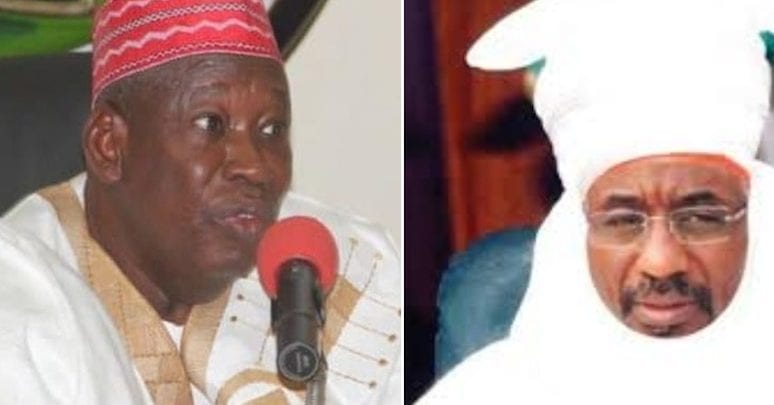
The removal of Muhammed Sanusi as the emir of Kano State has continued to generate furry on social media.
While some critics said Kano State Governor, Abdullahi Ganduje removed Mr Sanusi because he did not support his re-election last year, others argued that Mr Sanusi excesses were unbearable for the state government.
Amidst the controversy, some legal practitioners including, Femi Falana (SAN) have condemned Mr Sanusi’s dethronement.
POLITICS NIGERIA in this report looks at a judicial precedent that speaks against the banishment of a monarch.
The case we looked at occurred between the Kebbi State government and the deposed Emir of Gwandu, Mustapha Jokolo.
In the matter, the court ruled against Kebbi State government.
The court states as follows: “The court ruled that the Governor of Kebbi State has no right to act outside the clear and unambiguous provisions of the Constitution of the Federal Republic of Nigeria, 1999 (applicable to this case).”
“Section 35 (1) of the said Constitution provides that every citizen of Nigeria is “entitled to his personal liberty and no person shall be deprived of such liberty” except in the circumstances set out in subsections (a) to (f) thereof. Section 40 of the same Constitution provides that “every person is entitled to assemble freely and associate with other persons.”
“On the issue at hand, Section 41(1) of the Constitution is germane and it provides thus: “41 – (1) Every citizen of Nigeria is entitled to move freely throughout Nigeria and to reside in any part thereof, and no citizen of Nigeria shall be expelled from Nigeria or refused entry thereto or exit therefrom.”
“The banishment and deportation from Kebbi State by the Governor of Kebbi State, on or about the 3rd of June, 2005 of the 1st respondent (Emir of Gwandu) to Lafia in Nasarawa State and later to Obi, also in Nasarawa State, is most unconstitutional, and illegal.”
“By the said banishment and deportation, the 1st respondent has been, unduly and wrongfully denied his constitutional rights “to respect for the dignity of his person”; “to assemble freely and associate other persons” – including the people of Gwandu Emirate of Kebbi State; and to “move freely throughout Nigeria and to reside in any part thereof” as respectively provided in the Constitution of the Federal Republic of Nigeria, 1999.” Per ADUMEIN, J.C.A. (Pp. 72-73, paras. E-D), the court ruled then.
